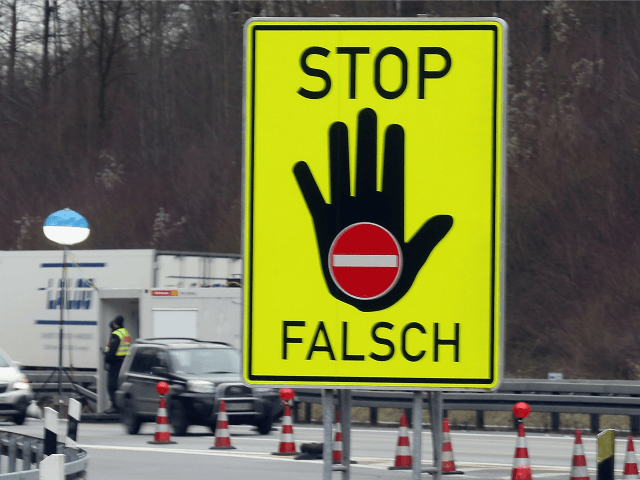In the first half of 2016 Germany has turned away 13,324 migrants at the German border, most of them migrants coming via the western Balkan region.
In a break with the migrant policies of last summer, Chancellor Angela Merkel’s government has started to attempt to turn the tide of mass migration into Germany. In the first six months of 2016, 13,324 migrants have been turned away at the border, unable to enter the country. This compares notably to a total of 8,913 who were stopped in 2015, while well over a million migrants filtered through the German borders.
The figures seem to suggest that Germany is tightening border regulations on the vast majority of those coming from the Balkan countries, rather than Africa or the Middle East, reports Die Welt.
The tightening of border security in Germany officially began in September of 2015, widely regarded as the peak traffic period of migrants, so far, during the migrant crisis. Though the border was supposedly secured, many like Ms. Merkel’s ally and leader of the Christian Social Union Horst Seehofer regarded the actions as too little. Mr. Seehofer even threatened to bring a constitutional lawsuit over lax border controls in Bavaria, where he serves as Prime Minister of the region.
Deportations have also risen in Germany in the first six months of 2016, and if the current trend continues will outpace the total number of those deported in 2015. The current total number of deportations this year stands at 13,743 compared to a total of 20,888 in 2015 and 10,884 in 2014. Most of the deportations have been forced deportations to the migrants’ countries of origin which often require incredibly costly flights.
It was revealed earlier this year that the costs of deporting migrants to North Africa or the Middle East can be substantially more expensive than a retail airline ticket. The average price to deport a migrant from the southern German region of Bavaria totalled close to €50,000 per person in comparison to an airline ticket that could cost as little as a few hundred euros.
The problem, German authorities have found, is a total unwillingness on the behalf of North African countries and other nations to accept the migrants back, and as a result have made the endeavour prohibitively expensive.
While some of the deported migrants have been from North Africa and the Middle East, most of them come from the western Balkan countries, which the German government deems as safe countries for migrants to return to. Some migrants have rejected the German government’s decision to label the Balkans safe countries, like the Roma Gypsies who occupied the Regensburg Cathedral but were ultimately made to leave by German police this week.

COMMENTS
Please let us know if you're having issues with commenting.